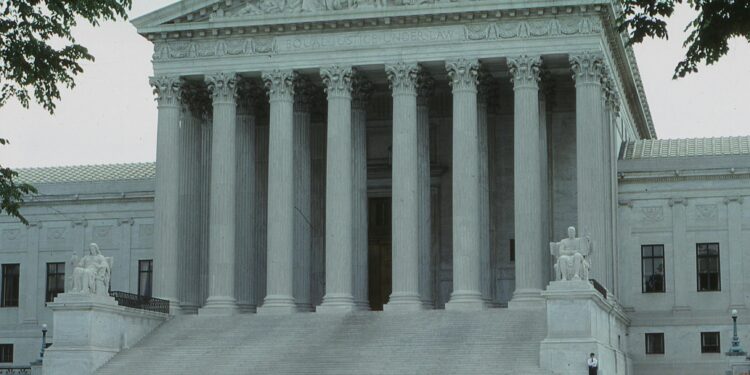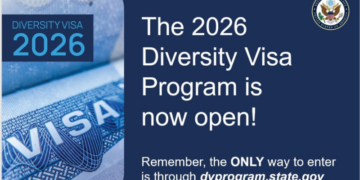In a 6–3 ruling issued Friday, June 27th, the U.S. Supreme Court significantly narrowed the authority of federal judges to issue nationwide injunctions, a decision with major implications for immigration policy and federal court powers.
The case stemmed from challenges to an executive order by President Donald Trump aimed at ending birthright citizenship for children of illegal migrants and temporary visa holders. Although the Court did not weigh in on the legality of the order itself, it restricted the ability of lower courts to halt such policies on a national scale.
Writing for the majority, Justice Amy Coney Barrett stated that federal courts likely lack congressional authorization to issue injunctions that apply beyond the actual plaintiffs in a case. The Court ruled that such broad orders overstep the judiciary’s equitable limits and instead granted a partial stay, allowing only plaintiff-specific relief.
The decision comes amid growing concerns over the expanding reach of district court rulings. The Congressional Research Service has flagged nationwide injunctions as a contentious and legally unsettled issue in recent years.
Speaking at the White House, Trump hailed the ruling as a win for constitutional governance and executive authority. Attorney General Pam Bondi echoed his remarks, saying the decision removes unnecessary legal barriers to implementing federal policies. However, the Court delayed the ruling’s full effect by 30 days, giving lower courts time to revise their injunctions.
In dissent, Justice Sonia Sotomayor criticized the majority for discarding long-standing judicial practices, arguing that injunctions protecting nonparties have been vital to preserving civil liberties. Justice Ketanji Brown Jackson also warned that limiting such relief threatens broader access to constitutional protections.
Civil rights groups, including the ACLU, condemned the decision, asserting it paves the way for selective enforcement of a controversial and, they argue, unlawful executive order.
The case touches on the core of the Fourteenth Amendment’s citizenship clause, established by the 1898 United States v. Wong Kim Ark ruling, which affirms that anyone born on U.S. soil is a citizen regardless of parental status. While the Court did not revisit that precedent, legal analysts caution that Friday’s decision weakens the uniform application of constitutional rights across the country.










